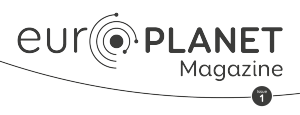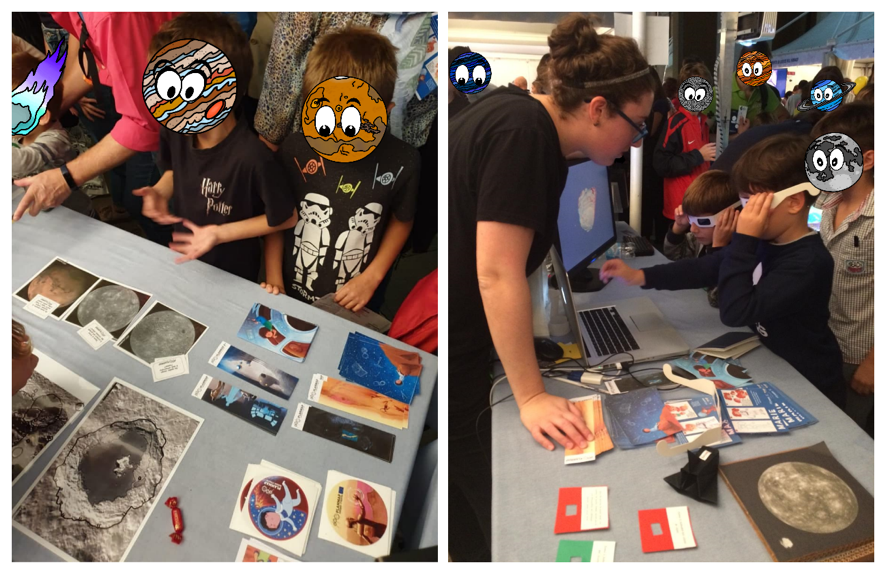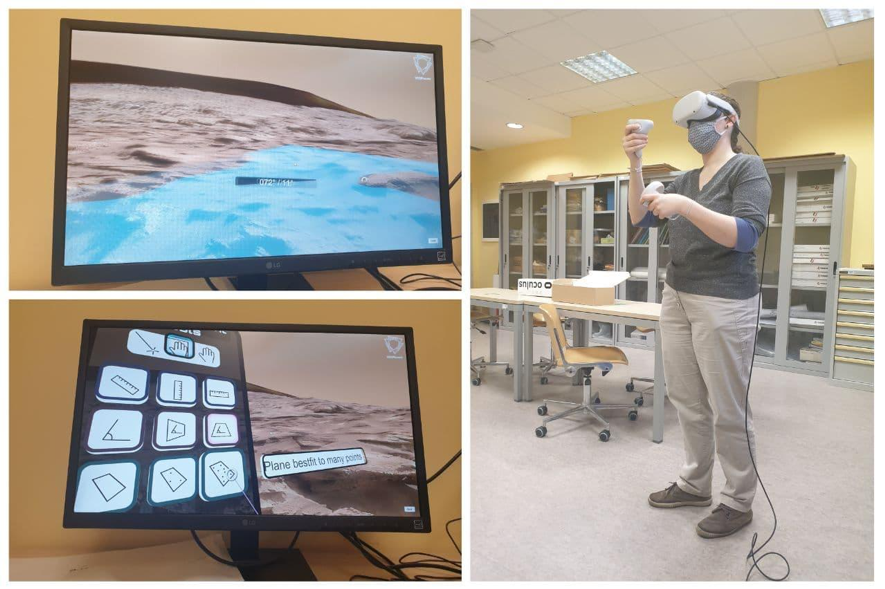Researchers develop AI method for mapping planets
Can the mapping of planets become an automated process? Scientists from Constructor University in Bremen, Germany, the University of Padua, and the University of Bologna have now developed a novel, open-source approach for the mapping of planetary landforms using artificial intelligence. “DeepLandforms,” the pre-release version of the deep learning program was published in the American Geophysical Union journal “Earth and Space Science” at the end of December.
Creating geological maps of planetary surfaces such as Mars is a complex process. From data collection to data analysis to publication in different formats – the production of maps is based on a time-consuming, multi-step process. Deep Learning techniques, which use artificial neural networks to analyse data sets, can significantly improve the production process, as broadly shown in both scientific literature and applications. However, until now, open-source, ready-to-use, and highly customisable toolsets for planetary mapping were never released.
“We were interested in designing a simple, out-of-the-box tool that can be customised and used by many,” said Giacomo Nodjoumi. The PhD candidate in the research group of Angelo Rossi, Professor of Earth and Planetary Science at Constructor University, was key to developing “DeepLandforms”. The program is open and available for further optimisation, and showcases an inexpensive, fast, and simple approach to mapping planets in outer space.
The scientists demonstrated the results that can be achieved with the help of the software for planetary mapping with a specific landform on Mars, which resembles lava tubes on Earth. Geological maps are an important tool in planetary exploration, because they also serve as a basis for possible explorations by robots or humans.
Link to Article:
DeepLandforms: A Deep Learning Computer Vision toolset applied to a prime use case for mapping planetary skylights
Acknowledgement
This study is within the Europlanet 2024 RI and EXPLORE project, and it has received funding from the European Union’s Horizon 2020 research and innovation programme under grant agreement 871149 and 101004214. Open Access funding enabled and organized by Projekt DEAL.
About Constructor University and Constructor group:
An international community, vibrant and diverse. Offering academic excellence, ensuring the highest standards in research and teaching. Empowering students to solve the world’s pressing challenges through knowledge and science: Constructor University is a top-ranked, English-speaking, private university. Founded in 2001, it provides a wide range of 25+ academic programs and PhD. The Constructor ecosystem comprises the university, located in Bremen, Germany and an institute in Schaffhausen, Switzerland.
Over 1.800 students from more than 110 nations on campus benefit from a unique interdisciplinary, foundational theoretical and practical education. Enriched with a buzzing entrepreneurial culture that prepares young professionals to thrive in the job market. With 6.000+ alumni worldwide our community keeps growing – with our highest cohort ever registered in 2022.
The research-centric faculty projects are funded by the German Research Foundation and the European Union’s Framework Program for Research and Innovation as well as by globally leading companies.
Constructor University benefits from partnerships with high-ranked universities such as Carnegie Mellon, the University of Geneva or the National University of Singapore School of Computing, and technology companies such as Anisoprint, JetBrains and ChemDiv.
The Constructor ecosystem is a global institution dedicated to addressing the main challenges of the world through science, education, and technology. Apart from the University, the ecosystem relies on several for-profit entities that provide technology infrastructures and solutions, life-long education programs, consulting services, and funding: Alemira by Constructor, Rolos by Constructor, Constructor Learning and Constructor Capital.
About Europlanet
Since 2005, Europlanet has provided Europe’s planetary science community with a platform to exchange ideas and personnel, share research tools, data and facilities, define key science goals for the future, and engage stakeholders, policy makers and European citizens with planetary science.
The Europlanet 2024 Research Infrastructure (RI) has received funding from the European Union’s Horizon 2020 research and innovation programme under grant agreement No 871149 to provide access to state-of-the-art research facilities and a mechanism to coordinate Europe’s planetary science community. The project builds on a €2 million Framework 6 Coordination Action (EuroPlaNet), a €6 million Framework 7 Research Infrastructure (Europlanet RI) and a €10 million Horizon 2020 Research Infrastructure (Europlanet 2020 RI) funded by the European Commission.
The Europlanet Society promotes the advancement of European planetary science and related fields for the benefit of the community and is open to individual and organisational members. The Society’s aims are:
- To expand and support a diverse and inclusive planetary community across Europe through the activities of its 10 Regional Hubs.
- To build the profile of the sector through outreach, education and policy activities
- To underpin the key role Europe plays in planetary science through developing links at a national and international level.
Europlanet 2024 RI project website: www.europlanet-2024-ri.eu
Europlanet Society website: www.europlanet-society.org
Follow on Twitter via @europlanetmedia
About EXPLORE
The EXPLORE project gathers experts from different science domains and technological expertises to develop new tools that will enable and promote the exploitation of space science data. Through EXPLORE, we are creating a series of scientific data applications (Apps) that support users who interact with the large space science data archives maintained by space agencies, observatories and other facilities (e.g. ESA Datalabs or ESCAPE SAP). Our applications will equip researchers with state-of-the-art Artificial Intelligence (AI) and visual analytics to enhance science return and discovery from ‘big data’, initially focusing on data from the Gaia mission (investigating the Milky Way galaxy and stars) and from various missions to explore the Moon. The EXPLORE Data Challenges aim to raise awareness of the Apps produced by the EXPLORE project, and to improve the accuracy of the Apps by harnessing expertise from other data analysis fields.
This project has received funding from the European Union’s Horizon 2020 research and innovation programme under grant agreement No 101004214. https://explore-platform.eu








